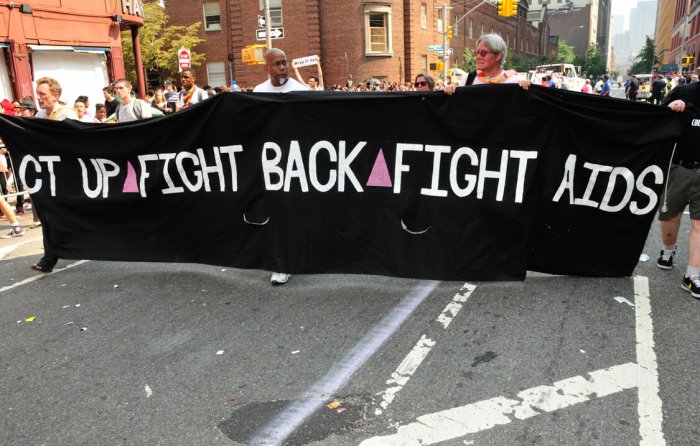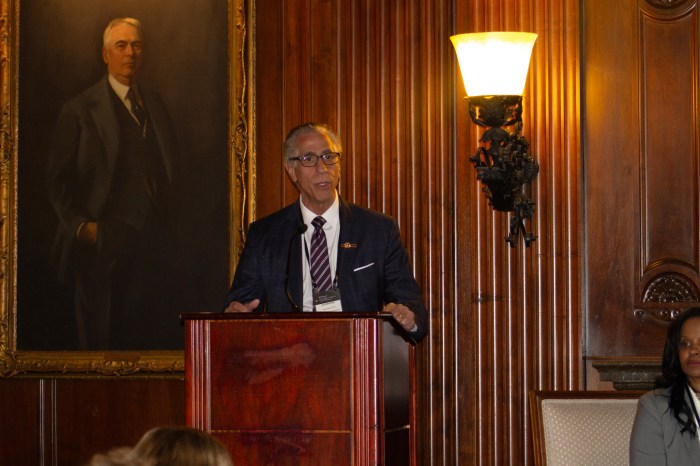State and federal courts released a flood of new LGBT-related opinions in the last few weeks of 2012. The most significant among them are detailed below:
The Montana Supreme Court divided 4-3 in a December 17 ruling over whether it could issue a declaratory judgment on a claim made by a group of same-sex couples that the statutory structure of Montana law unconstitutionally discriminates against them. Chief Justice Mike McGrath wrote for the majority that the trial judge correctly ruled that issuing the declaration would “run afoul of the separation of powers” because it would “likely impact a large number of statutes in potentially unknown and unintended ways.”
Montana has a state constitutional amendment that provides that only the union of a man and a woman can be a valid marriage in that state. The plaintiffs, seeking all the rights and benefits associated with marriage — though not the name itself — based their claim on their right to equal protection of the law, required by the State Constitution.
While the majority of the court was unwilling to rule in favor of the plaintiffs, they were also careful not to decide whether the plaintiffs might have a valid claim concerning any particular statute. The case was sent back to the trial court, and the plaintiffs have the opportunity to file an amended complaint attacking particular statutes as violating their equal protection rights.
In a separate opinion, one member of the majority, Justice Jim Rice, argued such an action would be unsuccessful because of the anti-gay-marriage amendment.
The majority’s action stimulated a lengthy, passionate dissenting opinion by retiring Justice James C. Nelson, who noted this was his last opportunity to rule on gay rights. He insisted the majority was mistaken and that the court should declare sexual orientation to be a “suspect classification” under Montana law, which would make all unequal treatment of same-sex couples presumptively unconstitutional. He also suggested the state marriage amendment is itself a violation of the Montana Constitution. The two other dissenters were not willing to go so far, and wrote separately to endorse most but not all of Nelson’s opinion.
In Wisconsin, the Court of Appeals, an intermediate bench, issued a more favorable decision, on December 20, in a lawsuit involving the rights of same-sex couples. Wisconsin also has a marriage amendment, but this one goes farther than Montana’s, providing that the Legislature may not create a “legal status” for same-sex couples “substantially similar” to marriage. A few years after the amendment was enacted, the Legislature passed a Domestic Partnership Registration Act, which established a status of “domestic partner” and amended several state laws to provide that domestic partners be treated equally with married couples for specified purposes. A group of proponents of the marriage amendment filed suit against that statute.
Affirming a circuit court ruling, the Court of Appeals found that the plaintiffs failed to show that the new domestic partnerships are “substantially similar” to marriage, noting the law provided a list of rights for domestic partners that fell significantly short of conferring all the rights of marriage. Based on a review of the amendment proponents’ statements during the campaign to enact it, the court also found they had explicitly disavowed any intent to block the state from recognizing same-sex partners for specific purposes, instead intending only to prevent “Vermont-style” civil unions.
The Iowa District Court in Polk County, on December 12, ruled in favor of Lambda Legal’s claim that the state Department of Health (DPH) should not have refused to list both members of a married lesbian couple, Jessica and Jennifer Buntemeyer, as parents on the Certificate of Fetal Death issued when Jessica gave birth to a stillborn infant. The women married in Iowa in 2010, and their child was stillborn in October 2011. Indicating that the couple was married, the women submitted a Certificate listing Jessica as “mother” and Jennifer as “father.” DPH removed Jennifer’s name, leaving the “father” space blank.
DPH argued its job is to maintain “accurate and complete records and statistics,” and that listing Jennifer as “father” would make the record inaccurate. The court disagreed, accepting Lambda Legal’s argument that under the Iowa Supreme Court’s unanimous marriage decision, same-sex marriages are to be treated the same under state law as different-sex marriages. The right of both parents to be listed on the Certificate, it found, would not compromise the accuracy of the Department’s records.
Federal appeals courts also issued some notable rulings last month. In a further development in the challenges to a new California law that bans health care providers from engaging in “sexual orientation change efforts” on minors, its opponents gained a temporary victory when they persuaded the emergency appeals panel of the Ninth Circuit Court of Appeals to block the ban from going into effect on New Year’s Day. The court is considering an appeal of District Judge Kimberly Mueller’s December 4 ruling that the ban does not violate the First Amendment rights of health care providers The appellate panel issued its order on December 21.
Another judge in the same district court, William Shubb, ruling December 3 on claims brought by a different set of plaintiffs, had issued a preliminary injunction blocking the state from enforcing the new law against those specific three plaintiffs, though not any other health care providers. The Ninth Circuit’s consideration of the merits in the appeal of Mueller’s ruling may render Shubb’s proceedings superfluous.
On December 17, the Sixth Circuit Court of Appeals, based in Cincinnati, upheld a ruling in favor of the University of Toledo, which had discharged its associate vice president for human resources, Crystal Dixon, after she published an anti-gay op-ed article in the Toledo Free Press.
In an editorial criticizing the university’s failure to extend domestic partnership benefits to employees at a newly merged medical campus, the Free Press compared the gay rights movement to the push for black civil rights and disability rights. In a response, Dixon wrote, “As a Black woman who happens to be an alumnus of University of Toledo’s Graduate School, an employee and business owner, I take great umbrage at the notion that those choosing the homosexual lifestyle are ‘civil rights victims.’” She went on to talk about “thousands of homosexuals” leaving “the gay lifestyle” through “Exodus International,” while defending the university’s benefits policy.
Apparently appalled, the university’s president suspended and then discharged Dixon and published a statement disassociating the school from her remarks. Dixon claimed that her First Amendment rights were violated, but the court held that the university was free to discharge a person in her position for making public statements contrary to its policies. The court also rejected her equal protection argument, finding she could not show that another employee with her responsibilities — enforcing the university’s civil rights policies — had been retained after making public statements in conflict with those policies.
The US District Court in Alabama issued a notable ruling on December 21, finding that changes in medical knowledge and treatments for HIV infection put that state Department of Corrections policy on inmates living with HIV at odds with the Americans with Disabilities Act. In the 1990s, the Atlanta-based 11th Circuit Court of Appeals rejected a similar claim challenging the policy of strictly segregated housing for positive inmates, but District Judge Myron H. Thompson pointed out the prior decision was based on medical knowledge at the time. The world of HIV in prisons has moved on, he found, noting that inmates compliant with their treatment regimens presented little risk of HIV transmission to others.
The state was given the opportunity to propose a program to comply with the ruling, rather than having a solution imposed on it.

































